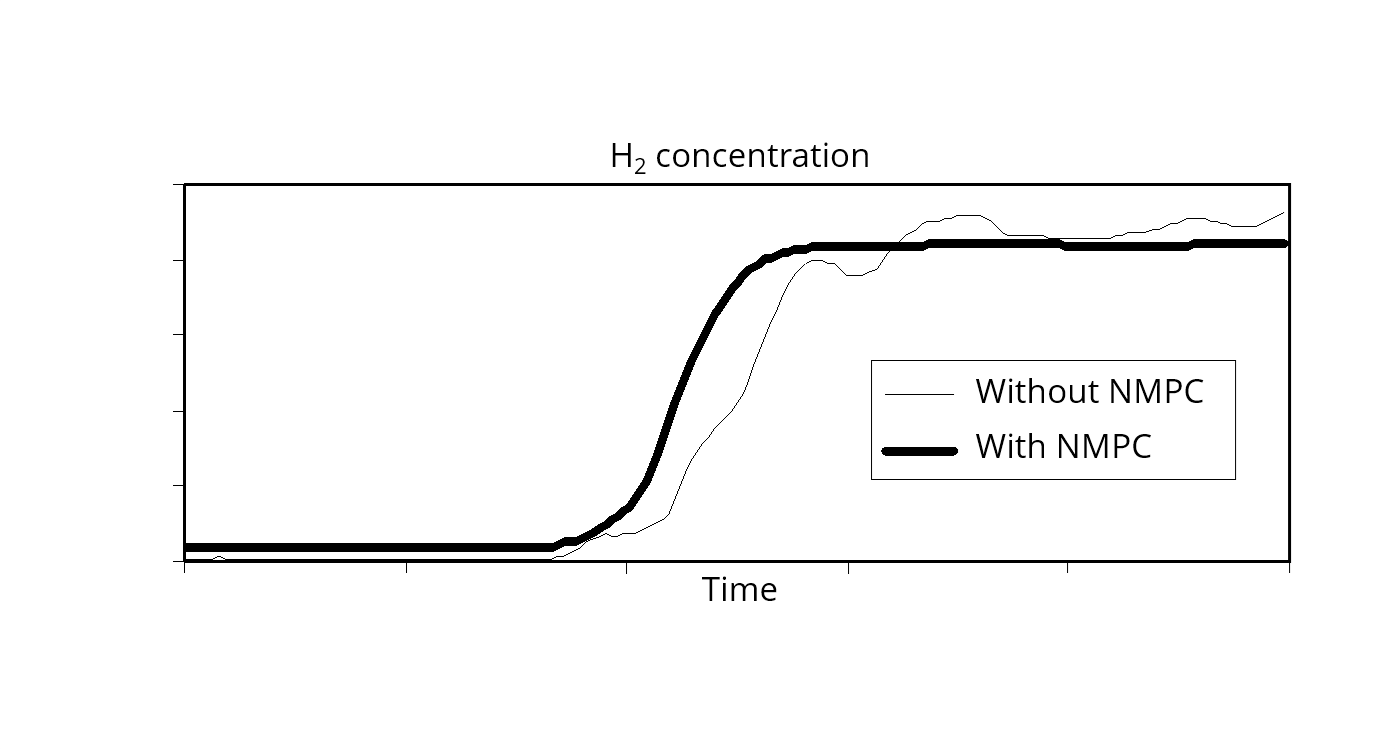Case Model predictive control of polyolefin processes
Cybernetica has extensive experience in development and implementation of Nonlinear Model Predictive Control (NMPC) applications based on mechanistic models, for various polyethylene and polypropylene polymerization processes. Cybernetica delivers such systems based on Cybernetica CENIT.
The main benefits of using this technology compared to conventional control are:
- Improved productivity by operating closer to constraints. 4-7% increase in production rate is often feasible.
- Smoother, faster and safer grade transitions, resulting in less off-spec material.
- Consistent control of product quality parameters such as melt index, density (HDPE) and copolymer content (PP).
- Reduced consumption of catalysts and inerts.
- Fewer production interruptions.
Process modelling
The mechanistic process model utilized within Cybernetica CENIT is adapted to each specific process unit. Reactor design data are acquired from the customer. Other model parameters are estimated off-line from logged process data and lab measurements using Cybernetica ModelFit.
Models of polyolefin processes
- Mass, energy and component balances.
- Kinetics and thermodynamics for the polymerization reactions.
- Phase equilibria.
- Polymer properties such as MFR, density and co-monomer content, etc.
- Catalyst deactivation.

Model predictive control (MPC)
MPC will typically be used to manipulate feed rates of monomers and catalysts, as well as other variables dependent on the particular polymerization process.
The figures below show how the control of H2 concentration, solid concentration and production rate are improved with the use of MPC based on mechanistic models as outlined above.



Safe operation
Using model adaption, Cybernetica CENIT ensures that the industrial processes are safely controlled in spite of model uncertainty.
In addition to the inherent safety associated with the model predictive control methodology and the online model adaptation, CENIT includes functionality for fault detection and diagnosis.
Implementation
Cybernetica CENIT applications typically run on a dedicated application station (Windows server). It communicates with a DCS system via the Open Platform Communications (OPC) protocol.
Cybernetica employees have extensive experience in industrial implementation and commissioning of advanced process control (APC) applications.
Maintenance
Cybernetica’s maintenance programme ensures that all applications perform at their best at all times. Cybernetica rapidly responds to customer requests. Cybernetica CENIT has built-in functionality for reproduction and diagnosis of current or past process situations, facilitating efficient analyses of issues reported by the customer.
The most common and important issues are reported directly to the operators, enabling the operators to act when necessary.
